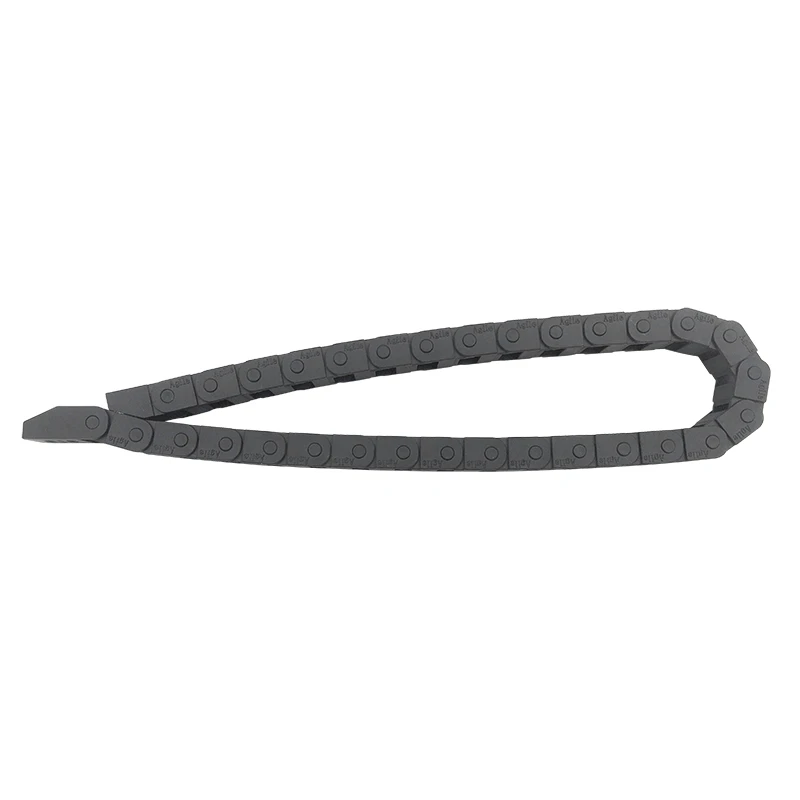Choosing the Right Flexible Cable Carrier Chain for Your Application Needs
Understanding Flexible Cable Carrier Chains A Comprehensive Overview
In today’s ever-evolving technological landscape, efficient cable management has become a critical aspect of various industries, particularly in fields such as manufacturing, robotics, and automation. One of the most effective solutions for addressing these challenges is the use of flexible cable carrier chains, commonly referred to as cable tracks or drag chains. These innovative systems enhance operational efficiency, protect cables, and streamline movement in complex machinery setups.
What are Flexible Cable Carrier Chains?
Flexible cable carrier chains are engineered structures designed to guide and protect flexible cables and hoses in dynamic applications. They consist of interconnected links that can bend and flex, allowing for uninterrupted movement while keeping cables organized and secure. These chains are particularly valuable in environments where machinery undergoes considerable movement, such as in CNC machines, robotic arms, and conveyor systems.
Benefits of Using Cable Carrier Chains
1. Cable Protection One of the primary functions of flexible cable carrier chains is to safeguard cables from wear and tear, abrasion, and environmental factors. By encasing them in a protective channel, they prevent damage that could otherwise lead to costly downtime due to cable replacements.
2. Organization With multiple cables running through machinery, it can quickly become disorganized. Cable carrier chains provide a structured methodology for routing cables, reducing clutter, and simplifying maintenance. This organized approach not only keeps cables in good condition but also makes troubleshooting and repairs more manageable.
3. Flexibility and Versatility These systems can accommodate various cable types, including power, control, and data cables, making them versatile for different applications. Users can customize cable carrier chains based on the specific needs of their operations, including the length, size, and design of the chain.
4. Reduced Friction and Wear The construction of flexible cable carrier chains minimizes friction between moving parts, leading to reduced wear on cables and extended longevity. This feature is particularly beneficial in applications that involve rapid or repetitive motion, where traditional cable management solutions may falter.
5. Improved Safety By keeping cables secured and routed correctly, cable carrier chains can help reduce safety hazards in the workplace, such as trip hazards from loose cables. A well-organized setup ensures a safer working environment for employees, minimizing the risk of accidents.
flexible cable carrier chain

Applications of Flexible Cable Carrier Chains
Flexible cable carrier chains can be found across various industries, serving multiple functions
- Manufacturing and Production In assembly lines and machining operations, these chains support robotic arms, ensuring smooth movement over designated paths while managing power and control signals. - CNC Machinery They provide reliable cable management for CNC machines, facilitating uninterrupted operations while protecting sensitive wiring from damage during mobile cycles.
- Robotics Owing to their flexibility, they are ideal for powering robotic joints and limbs, ensuring that cables do not restrict movement and flexibility.
- Automated Guided Vehicles (AGVs) In logistics and warehousing, these chains are crucial for ensuring that AGVs operate effectively, without experiencing cable snags or disconnects.
Installation and Maintenance
Installing flexible cable carrier chains requires careful planning and consideration of the system's operational environment. Factors such as bending radius, load capacity, and cycle life must be taken into account. Regular maintenance, including inspections for wear and tear and ensuring that the cables are correctly routed, is essential for the longevity and efficiency of the system.
Conclusion
In conclusion, flexible cable carrier chains represent a vital component in modern automation and machinery, enhancing cable management while protecting important wiring systems. Their ability to withstand movement, minimize wear, and improve organizational structure makes them an indispensable tool in various industrial applications. As industries continue to evolve, the importance of effective cable management solutions like flexible cable carrier chains will only grow, paving the way for safer and more efficient operations in an increasingly automated world.








